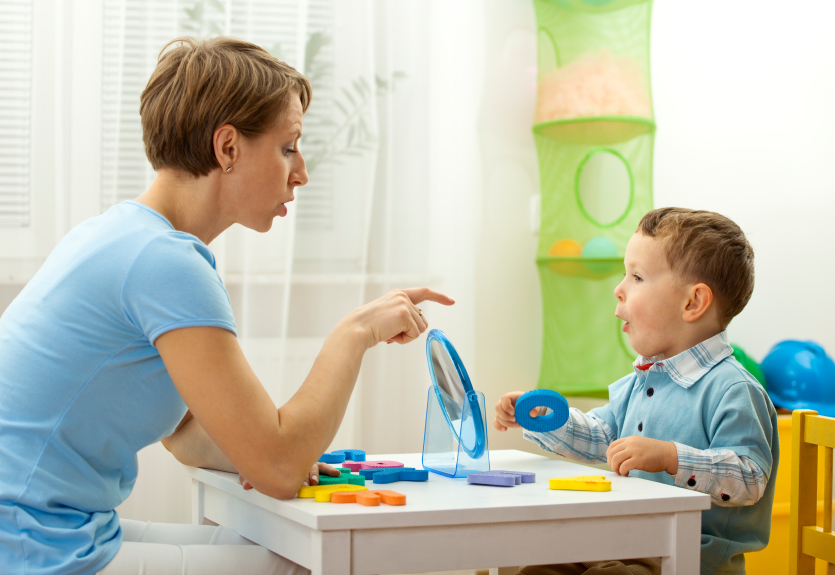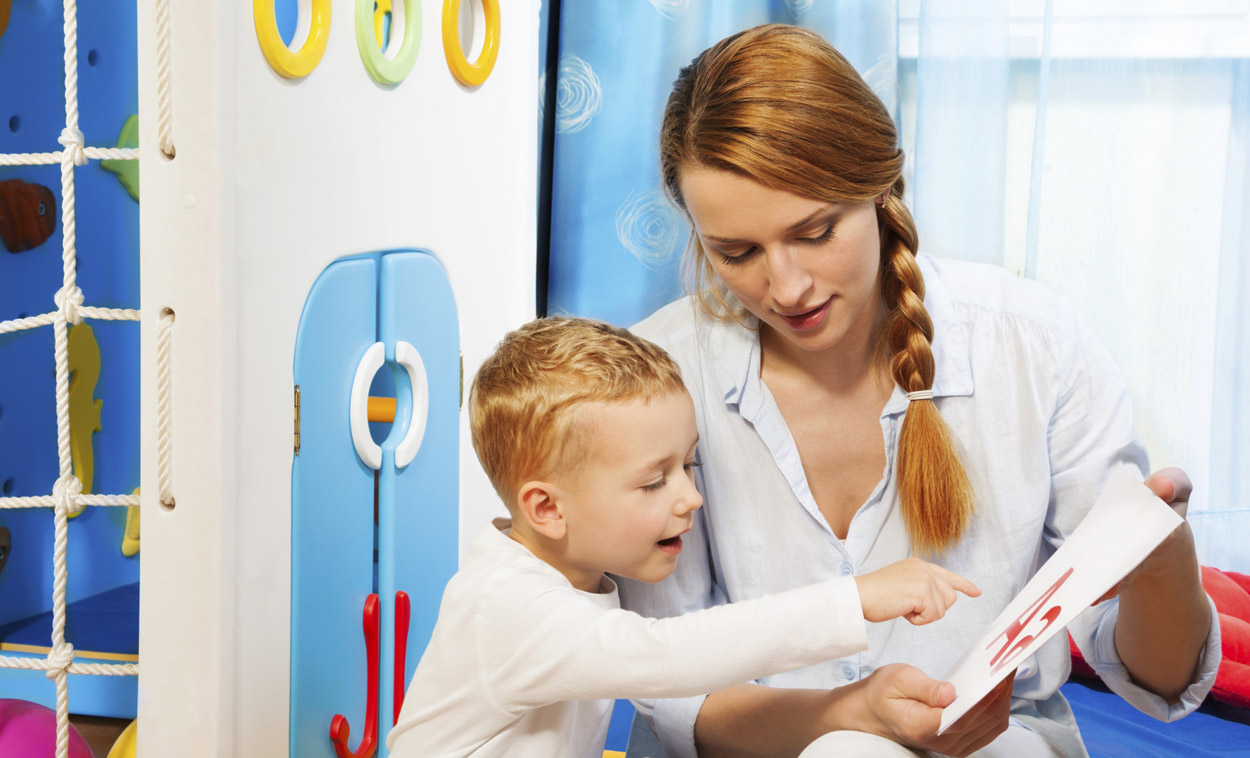Pediatric Treamtent for Articulation
What are Speech Sound Disorders?

First Leap Offers a Free 30 Minute Consultation

Most children make some mistakes as they learn to say new words. A speech sound disorder occurs when mistakes continue past a certain age. Every sound has a different range of ages when the child should make the sound correctly. Speech sound disorders include problems with articulation (making sounds) and phonological processes (sound patterns).
What are some signs of an articulation disorder?
An articulation disorder involves problems making sounds. Sounds can be substituted, left off, added or changed. These errors may make it hard for people to understand you.
Young children often make speech errors. For instance, many young children sound like they are making a “w” sound for an “r” sound (e.g., “wabbit” for “rabbit”) or may leave sounds out of words, such as “nana” for “banana.” The child may have an articulation disorder if these errors continue past the expected age.
Not all sound substitutions and omissions are speech errors. Instead, they may be related to a feature of a dialect or accent.
What causes speech sound disorders?
Many speech sound disorders occur without a known cause. A child may not learn how to produce sounds correctly or may not learn the rules of speech sounds on his or her own. These children may have a problem with speech development, which does not always mean that they will simply outgrow it by themselves. Many children do develop speech sounds over time but those who do not often need the services of an SLP to learn correct speech sounds.
Some speech sound errors can result from physical problems, such as:
- developmental disorders (e.g.,autism)
- genetic syndromes (e.g., Down syndrome)
- hearing loss
- illness
- neurological disorders (e.g., cerebral palsy)
Children who experience frequent ear infections when they were young are at risk for speech sound disorders if the ear infections were accompanied by hearing loss.
Speaking with an accent and/or dialect is not a speech sound disorder.
How are speech sound disorders diagnosed?
A speech-language pathologist (SLP) is the professional that evaluates children or adults with speech and language difficulties. The SLP listens to the person and may use a formal articulation test to record sound errors. An oral mechanism examination is also done to determine whether the muscles of the mouth are working correctly. The SLP may recommend speech treatment if the sound is not appropriate for the child’s age or if it is not a feature of a dialect or accent. For children, the SLP often also evaluates their language development to determine overall communication functioning.
What treatments are available for people with speech sound disorders?
SLPs provide treatment to improve articulation of individual sounds or reduce errors in production of sound patterns.
Articulation treatment may involve demonstrating how to produce the sound correctly, learning to recognize which sounds are correct and incorrect, and practicing sounds in different words. Phonological process treatment may involve teaching the rules of speech to individuals to help them say words correctly.
How common are speech sound disorders?
In young children learning to speak, speech sound errors are quite common. In fact, very few children develop speech without producing errors early on. By the age of 8, children should be able to produce all sounds in English correctly.
What do SLPs do when working with individuals with speech sound disorders?
Consult with your SLP if you feel you child would benefit from speech sound disorder therapy. Clinician use a variety of techniques and teaching methods that are individualized to your child’s needs.

